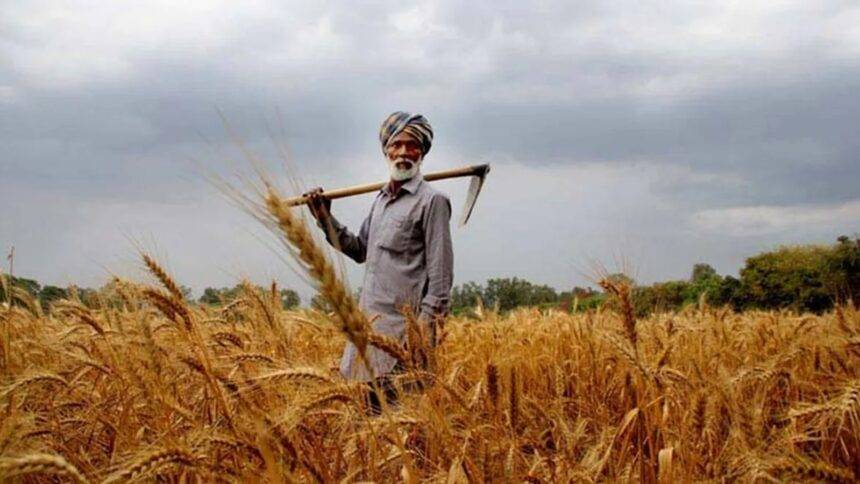Main Points In Hindi (मुख्य बातें – हिंदी में)
यहाँ पर दिए गए लेख के मुख्य बिंदु निम्नलिखित हैं:
-
नीतिगत सुधारों का अभाव: सरकार के तीसरे कार्यकाल के छह महीनों में कोई महत्वपूर्ण कृषि नीतिगत सुधार नहीं किया गया है, जिससे किसानों और वैज्ञानिक समुदाय में असंतोष है।
-
राजनीतिक प्राथमिकताएँ: सरकार ने महंगाई पर नियंत्रण को प्राथमिकता दी है, लेकिन चुनावी विवेक को चुना है जिससे वह कृषि पर निर्भर 40 प्रतिशत जनसंख्या के हितों को नजरअंदाज कर रही है।
-
किसान संगठनों के अनुरोधों का अनसुना करना: सरकार के मंत्री किसान संगठनों की समस्याओं और अनुरोधों को नजरअंदाज कर रहे हैं, इससे सरकारी नीतियों के प्रति अविश्वास बढ़ रहा है।
-
जनता की चिंताओं की उपेक्षा: लोगों में असहज प्रश्न पूछने और सरकार की नीतियों के खिलाफ आवाज उठाने की प्रवृत्ति कम हो गई है, जिससे तात्कालिक समाधान और वैकल्पिक दृष्टिकोण का अकाल है।
- भरोसे की आवश्यकता: किसानों और सरकार के बीच विश्वास का निर्माण आवश्यक है, ताकि कृषि में सुधार और प्रभावी नीतियाँ लागू की जा सकें। सरकार को किसानों के विचारों का सम्मान करना और अपने कार्यों में सुधार करने की आवश्यकता है।
Main Points In English(मुख्य बातें – अंग्रेज़ी में)
Here are the main points from the provided text:


-
Lack of Policy Announcements: Six months into the government’s third term, there have been no significant announcements or policy reforms in agriculture, highlighting a struggle with decision-making on issues like biotechnological crops and natural farming support.
-
Political Priorities Over Agricultural Needs: The government’s focus has been on managing inflation while neglecting the interests of the 40% of the population dependent on agriculture, leading to a misalignment of priorities shaped by frequent elections and economic stubbornness.
-
Disconnect from Farmer Concerns: There is a notable disconnect between government ministers and the agricultural community, making it difficult for the government to win the trust of farmers despite having good initiatives.
-
Ineffectiveness of Agricultural Innovations: Innovations such as nano-urea have faced rejection from farmers, and existing agricultural policies have shown little practical impact, indicating a gap between government intentions and ground realities.
- Need for Trust and Ground-Level Engagement: The text emphasizes the importance of trust between farmers and the government, suggesting that effective solutions require the inclusion of grassroots feedback and a recognition that ideas from outside traditional power structures can be valuable.
Complete News In Hindi(पूरी खबर – हिंदी में)
22 नवंबर, 2024 04:10 IST
पहली बार प्रकाशित: 22 नवंबर, 2024, 04:10 IST
सरकार के तीसरे महत्वपूर्ण कार्यकाल के छह महीने बीत जाने के बाद भी (सौभाग्य से) कोई बड़ी घोषणा नहीं की गई है और न ही कृषि को लेकर नीतिगत सुधार (दुख की बात) की कोई घोषणा की गई है। यह अच्छे इरादों या साहस की कमी के कारण नहीं है. इस सरकार में दोनों प्रचुर मात्रा में मौजूद हैं. ऐसा संभवतः इसलिए है क्योंकि यह सरकार विचारों के लिए संघर्ष कर रही है। उदाहरण के लिए, नई बायोटेक फसलों को अनुमति देने पर इसकी एक दशक पुरानी दुविधा या पर्याप्त धन सहायता के बिना प्राकृतिक खेती पर इसकी बयानबाजी को लें। विरोधाभासों और भ्रम से वैज्ञानिक समुदाय और किसान परेशान हैं।
अच्छे नेतृत्व की कुंजी केवल समाधान के लिए समस्याओं का चयन करना ही नहीं है। यह यह पहचानने की क्षमता से भी निर्देशित होता है कि किन समस्याओं के साथ जीना है। सरकार भोजन की पहचान करने में राजनीतिक रूप से सही रही है मुद्रा स्फ़ीति और इसे नियंत्रण में रखने की कोशिश की जा रही है. ऐसा करने में, उसने भारत की 40 प्रतिशत आबादी के हितों के बजाय चुनावी विवेक को चुना है; जो कृषि पर निर्भर हैं। यह गलत प्राथमिकता दो कारकों के कारण मौजूद है। एक, अर्थशास्त्र जिद्दी बना हुआ है, बदलाव से इनकार कर रहा है, भले ही इसने “प्रगति” की अवधारणा की कोई वैकल्पिक अवधारणा नहीं दी है। दो, हर कुछ महीनों में राष्ट्रीय या राज्य चुनावों का सामना करने वाले राजनीतिक दलों की अदूरदर्शी दृष्टि। यदि इतिहास का कोई सबक है तो वह यह है कि हम उससे कुछ नहीं सीखते।
आज, कम लोग असहज प्रश्न पूछ रहे हैं या विपरीत आख्यानों की वकालत कर रहे हैं, जिसके बिना सरकार दर्पण में देख रही है और प्रतिबिंब को पसंद कर रही है। लेकिन किसी चीज़ पर विश्वास करने की चाहत उसे सच नहीं बनाती। लोगों में आख्यानों और कहानियों के प्रति भूख है भाजपाजो एजेंडा तय करता था, हाल ही में लेखक के अवरोध का सामना कर रहा है। इसकी हर तरह से चिंता होनी चाहिए.
केंद्रीय मंत्री पहुंच से बाहर हैं. इसका मतलब यह है कि वे अपने पूर्ववर्तियों की गलतियों से विचलित होने और शासन और वितरण में सुधार के लिए लीक से हटकर विचार खोजने के अवसर खो देते हैं। ऐसा लगता है कि मंत्रियों का मानना है कि किसान संगठनों के अनुरोधों को नजरअंदाज करना उनका विशेषाधिकार है। यह नहीं है। कई अच्छी पहलों के बावजूद, सरकार कृषक समुदाय का दिल नहीं जीत पाई है और यह समझना मुश्किल नहीं है कि ऐसा क्यों है।
उत्सुकतापूर्वक सुनने से भी नीतिगत विफलताओं को रोकने में मदद मिल सकती है। उदाहरण के लिए, बहुप्रचारित और विज्ञापित नैनो यूरिया को लें। किसानों ने इसे सिरे से खारिज कर दिया. विफलता की घोर स्वीकारोक्ति में, निर्माताओं ने नैनो यूरिया में नाइट्रोजन की मात्रा को आश्चर्यजनक रूप से 400 प्रतिशत तक बढ़ा दिया है। सरकार द्वारा वित्त पोषित कृषि विश्वविद्यालय अभी भी इसका समर्थन करने से इनकार करते हैं। यह नैनो यूरिया के उपयोग से उत्पादकता बढ़ने के झूठे दावों के लिए निर्माताओं के खिलाफ वर्ग कार्रवाई के मुकदमे का उपयुक्त मामला प्रतीत होता है। इसी तरह, चुनाव के बाद, भारतीय कृषि अनुसंधान परिषद (आईसीएआर) ने कृषि उपज और पोषण को बढ़ावा देने के लिए 109 जलवायु-लचीला बीज किस्में जारी कीं। वैज्ञानिकों ने इस लेखक को बताया कि यदि पाँच को भी व्यावसायिक रूप से अपनाया गया तो उन्हें आश्चर्य होगा। पूसा डीकंपोजर और ड्रोन डिडिस कार्यक्रम की तरह, ये कहानियाँ अच्छी लगती हैं। प्रभावित करना तो दूर, इनमें से कोई भी प्रभाव भी नहीं छोड़ेगा। जो बात प्रभाव छोड़ती है वह है डीएपी उर्वरकों की कमी, धान की देर से उठान या किसानों को सब्सिडी वाले उर्वरकों के बैग प्राप्त करने के लिए नैनो यूरिया खरीदने के लिए मजबूर होना। राजनीतिक आकाओं को विश्वास के इस अपवित्र उल्लंघन का संज्ञान नहीं हो सकता।
राजनेताओं को यह महसूस करना चाहिए कि समाधानों पर सत्ता केंद्र के करीबी लोगों, अंतरराष्ट्रीय परामर्श फर्मों या व्यवसायों के लिए अग्रणी गैर सरकारी संगठनों का एकाधिकार नहीं है। अनुभव यह सिखाता है कि जो लोग सरकार में या उसके साथ काम नहीं करते हैं उनके पास पेश करने के लिए सबसे अधिक विचार होते हैं। मुख्य चुनौती यह है कि मेज पर उनकी राय कैसे रखी जाए। ज़मीनी स्तर से प्रतिक्रिया या नए विचार न मिलने से त्रुटिपूर्ण नीतियां और वितरण की कमी होती है और परिणामस्वरूप, विश्वास की कमी होती है। विश्वास सबसे महत्वपूर्ण शर्त है; चाहे वह फसल विविधीकरण के लिए हो, फसल अवशेष जलाने पर रोक लगाने के लिए हो, कृषि सुधारों को लागू करने के लिए हो, चुनाव जीतने के लिए हो या किसी अन्य सफल परिवर्तन या नीति को अपनाने के लिए हो। विश्वास पैदा करने में बहुत समय लगता है; विश्वास पैदा करने के मूल्य या आवश्यक समय को कम आंकने की प्रवृत्ति होती है। यह भी उतना ही स्पष्ट है कि, कृषि वस्तुओं की कमी की तरह, भरोसा भी अल्पकालिक होता है। जिस प्रकार वस्तुओं की अधिकता लंबे समय तक बनी रहती है, उसी प्रकार अविश्वास भी लंबे समय तक बना रहता है। यदि सरकार चाहती है कि किसान उस पर भरोसा करें, तो उसे किसानों पर भरोसा करना शुरू करना होगा और याद रखना होगा कि वह केवल वही काट सकती है जो उसने बोया है।
लेखक भारत कृषक समाज के अध्यक्ष हैं
Complete News In English(पूरी खबर – अंग्रेज़ी में)
November 22, 2024, 04:10 IST
First published: November 22, 2024, 04:10 IST
Six months into the government’s third term, there haven’t been any major announcements, especially regarding agricultural policy reform. This is not due to a lack of good intentions or courage; rather, the government seems to be struggling with ideas. For example, it has been indecisive for a decade about allowing new biotech crops, and its rhetoric around natural farming lacks sufficient funding. The scientific community and farmers are confused and frustrated by these contradictions.
Effective leadership involves not only selecting problems to solve but also recognizing which challenges are worth living with. The government has been politically correct in identifying food inflation but has prioritized electoral gains over the needs of the 40% of the population that depends on agriculture. This misalignment stems from two factors: stubborn economic conditions that resist change, despite the lack of alternative concepts for progress, and the short-sighted vision of political parties facing frequent elections. If history teaches us anything, it is that we rarely learn from it.
Today, fewer people are asking tough questions or advocating for alternative narratives; the government seems to be enjoying its own reflection rather than seeking genuine insight. Yet, wanting to believe something doesn’t make it true. There’s a hunger among the people for narratives and stories that challenge the status quo, especially with the BJP’s agenda facing its own write block, which should be a matter of concern.
Central ministers appear out of touch, missing opportunities to learn from past mistakes and find innovative solutions for governance and distribution. They seem to think ignoring farmer organizations’ requests is their prerogative, but it is not. Despite some good initiatives, the government has failed to win the farmers’ trust, and it’s not hard to see why.
Actively listening could help prevent policy failures. Take, for instance, nanourea, which has been heavily promoted but has been outright rejected by farmers. In a stark admission of failure, manufacturers have surprisingly increased the nitrogen content in nanourea by 400%. Agricultural universities funded by the government are still reluctant to support it. This could lead to class-action lawsuits against the manufacturers for their false claims about productivity gains. Similarly, after the elections, the Indian Council of Agricultural Research (ICAR) introduced 109 climate-resilient seed varieties aimed at boosting crop yields and nutrition. Scientists have informed me that even if five of them were adopted commercially, they would be surprised. Like the stories of Pusa decomposer and drone delivery programs, these initiatives seem appealing, but they are unlikely to have any significant impact. What truly matters are issues like the shortage of DAP fertilizers and the late sowing of rice, or forcing farmers to buy nanourea to receive subsidized fertilizer bags. Political leaders may remain unaware of this breach of trust.
Politicians must recognize that solutions are not monopolized by insiders or international consulting firms. Experience shows that those who are outside the government often have the most valuable ideas to offer. The challenge lies in ensuring their voices are heard. A lack of grassroots feedback or innovative ideas leads to flawed policies and a breakdown of trust. Trust is essential—whether for crop diversification, preventing crop burning, implementing agricultural reforms, winning elections, or adopting any successful changes or policies. Building trust takes time, and there is a tendency to underestimate the value or necessary duration for fostering trust. It is equally clear that, like the shortage of agricultural goods, trust can be fleeting. Just as an abundance of goods can last long, so can distrust. If the government wants farmers to trust it, it must start trusting farmers and remember that it can only reap what it sows.
The author is the president of the Indian Farmers’ Society.






